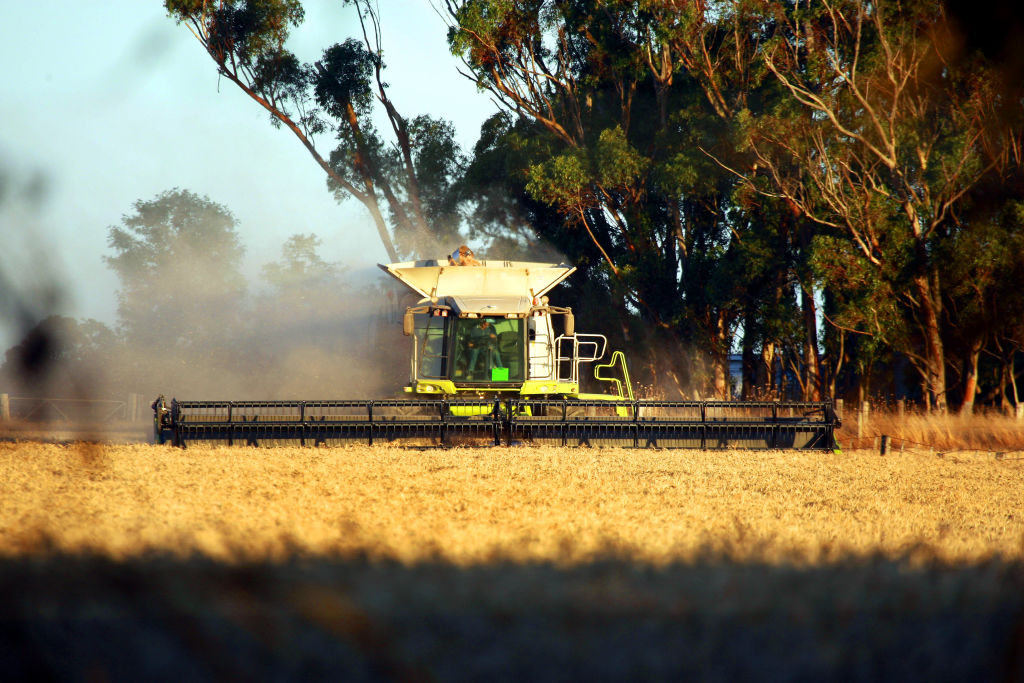
As Agtech booms farmers remain cautious about data harvesting
Agricultural technology has the potential to be a game-changer for the industry, yet many Australian farmers remain highly sceptical about the use of their confidential data.
Agtech is now commonly integrated into farming machinery and is designed to give farmers insights into yields and resources, ultimately leading to improvements in productivity and profitability.
It can be found in tractors, harvesters and fertilising systems connected or fitted with technologies such as satellite receivers, robotics and sensors.
Information collected from farming machinery enabled with digital technologies could add $20 billion to the agricultural economy if it was fully implemented, research by the Australian Farm Institute has found.
Yet farmers are cautious, says the institute’s executive director, Richard Heath.
“There’s certainly a barrier to implementation through trust,” he says.
“I think farmers are becoming more aware of the power imbalance between them and large agtechs and are questioning their rights in terms of data-use agreements.”
Major farming equipment manufacturer John Deere offers technology-enabled machinery connected by apps to improve jobs such as planting, spraying and harvesting.
The company is one of many trying to win the trust of farmers.
“John Deere customers are always in control of their data, and choose if, or who, they share their data with based on the permissions they set,” says Luke Chandler, managing director of Australia and New Zealand.
“John Deere maintains the security of a farmer’s data through up-to-date encryption, a dedicated, full-time security team and engagement of third-party experts to audit our systems.”
In 2020, the National Farmers Federation produced the Australian Farm Data Code after a three-year consultation with the agricultural industry. The self-regulated code doubles as a guide for farmers on how to assess and manage their data use, and a framework for companies offering data collection services.
This year, the federation is going one step further with the development of an accreditation system agtech companies must comply with.
It hopes to iron out concerns farmers have about unsolicited data use and data monetisation that can, in worst-case scenarios, be used to raise insurance premiums or undercut land values.
“There have been some examples where companies have been found to be on-selling data to third parties, mostly in an aggregated format so you can’t identify individual farmers, but it’s still a concern because you can potentially cross-reference that data with other data sets and sort of re-identify individual businesses,” says Charlie Thomas, the federation’s general manager of corporate affairs.
“I think that’s one of the reasons that we’re taking these issues so seriously, because Australia is unique in the sense that we’re very geospatially exposed. So, there’s readily available data from satellites which show what’s happening on every farm on the planet.”
The Australian Agritech Association, which represents more than 100 members, does not support data harvesting without the permission of farmers.
“Many Australian agritech companies generate and use data gleaned from their technology to provide services and insights that help improve productivity, yields and profitability of farming operations,” says chief executive Tracey Martin.
“AusAgritech and its members believe that it is unethical for third parties to share or sell farm data without the permission of the farmer.”
With more than 15 agtech and foodtech incubators and accelerators across Australia, there’s one thing farmers can be sure of – they will be seeing more technology enter their gates in the future.
This story is part of our April Agribusiness Feature. Read more of the stories here.
Get a weekly roundup of the latest news from Commercial Real Estate, delivered straight to your inbox!






